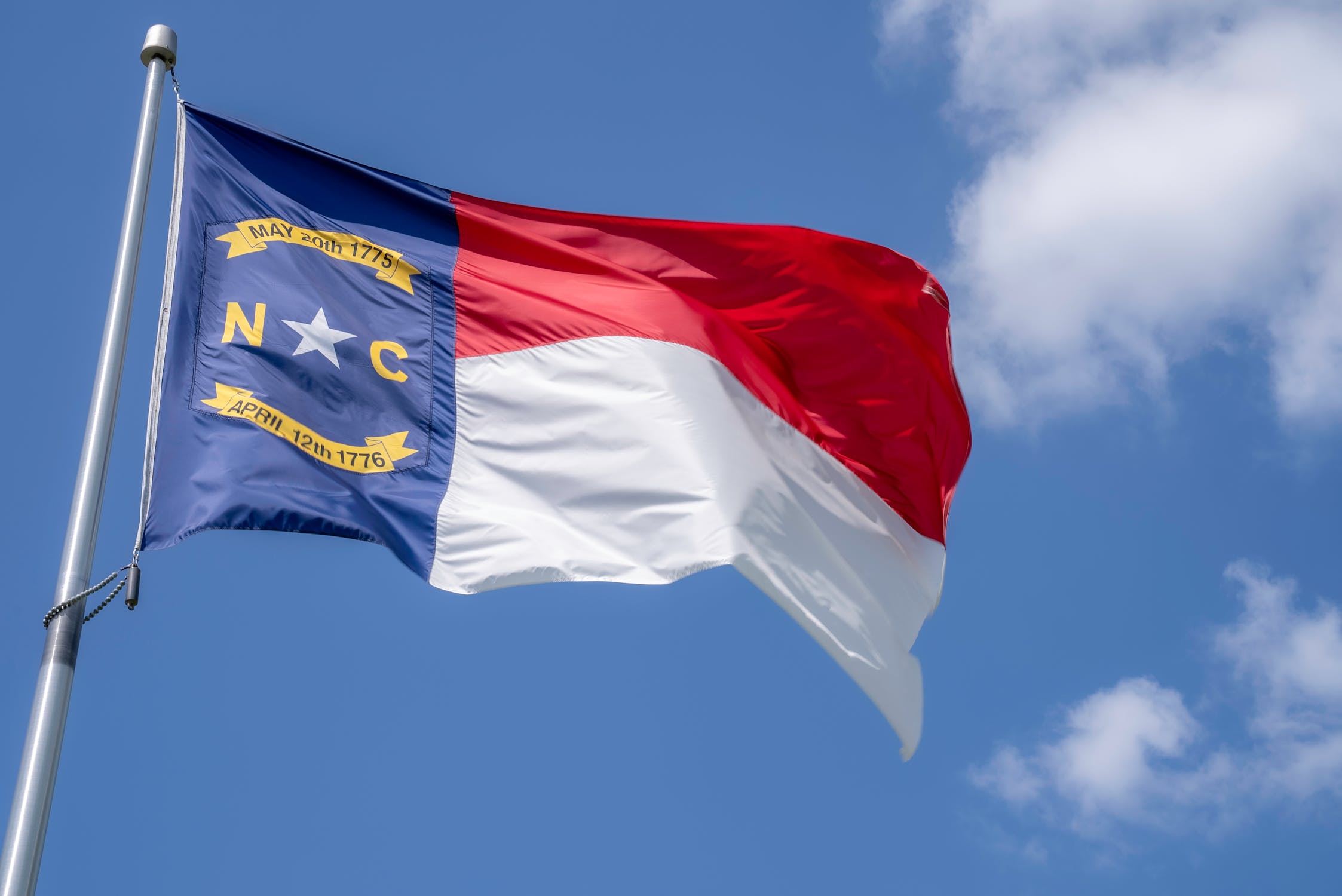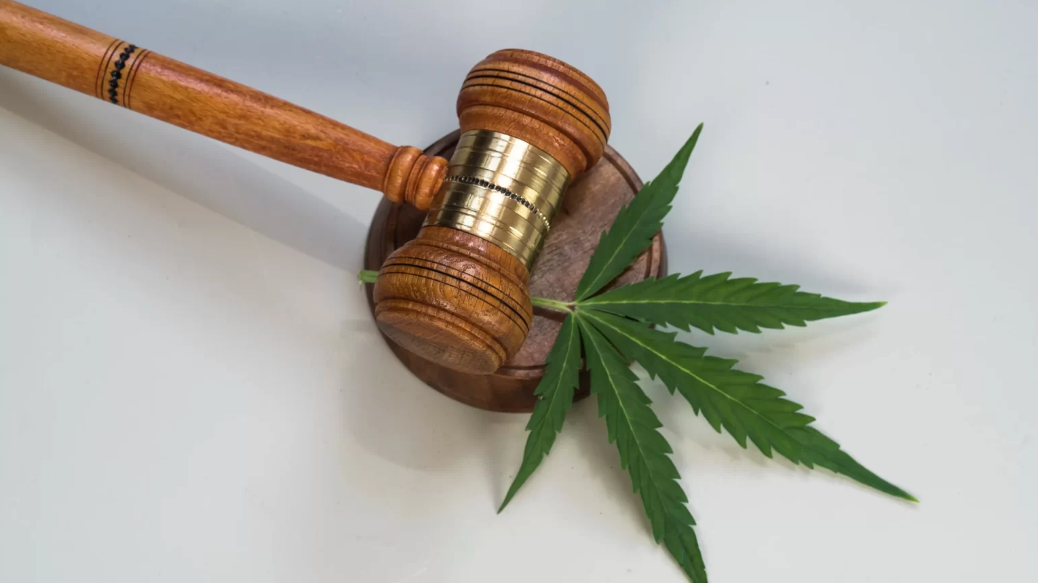Is Delta 9 Legal in North Carolina?

The magic number for the legality of Delta-9 in the state of North Carolina is 0.3. A bit obscure, I know! However, if your question is, “is Delta 9 legal in NC?” The simple answer is Yes. You can buy Delta-9 THC contained in hemp-derived edibles legally in North Carolina. However, it is essential to know that only hemp products with 0.3% or less concentration of Delta 9 are considered legal in North Carolina.
So, to ensure that you do not get tangled in the tripwires of North Carolinian laws regarding Delta 9 THC-infused products such as THC drinks, disposable vapes, and edibles, we conducted our research on the legality of Delta 9 THC in North Carolina and detailed the results in this article.
Enjoy!
Is It Legal to Buy Delta 9 THC in North Carolina?
In June 2022, the state of North Carolina passed laws that defined hemp as all parts of the cannabis plant with no more than 0.3% Delta 9 THC on a dry weight basis. At the same time, hemp products were defined to include all products made from hemp under G.S. 90-87(13b). These new laws, most importantly, now explicitly state that “hemp” includes all extracts, derivatives, cannabinoids, isomers (like Delta 8 THC and Delta 10 THC), and lots more. This new law ensured that products containing these derivatives and isomers qualify as legal hemp products as long as they are sourced from hemp.
To answer the question, is it legal to buy delta 9 THC in North Carolina? The answer is a resounding yes, as long as the product does not contain more than 0.3% concentration on a dry weight basis of Delta 9 THC or any of its derivatives. On a dry weight basis, the plant material's weight is no greater than 13% moisture content.
Usually, as a consumer, you rarely have to worry about any of this because all you have to keep in mind is that most Delta 9 THC products are manufactured to comply with the regulation of most states in the United States.
Understanding Delta 9 THC
Perhaps, a better understanding of Delta 9 THC might mitigate any doubts you have about its legality in North Carolina, its potency, and the duration of its effects.
Delta 9 tetrahydrocannabinol (THC) is a naturally occurring isomer of THC. It is responsible for the euphoric feeling experienced after the consumption of any THC-infused product, such as gummies or THC drinks.
The most common isomers of THC include Delta 9, Delta 8, and Delta 10 (less talked about, we think it’s because it provides the lightest buzz!) Get it?
Delta 9 THC can be found in cannabis and hemp plants, and it is the most abundant form of THC. Therefore, when most people talk about THC, they most often talk about Delta 9 THC. Delta 9 THC is very effective at triggering the brain to release large amounts of dopamine, also known as “the feel good” chemical.
THC readily binds to the CB1 and CB2 receptors in the brain to get you high. To put it simply, Delta 9 THC is a type of THC, and THC is the psychoactive chemical found in Hemp and cannabis that helps to provide that euphoric feeling that we love so much!
One of the many reasons for the sudden surge in popularity of Delta 9 THC is its extensive use for recreational purposes by a certain percentage of the population in the United States and worldwide. Many people have reported using products containing Delta 9 THC for stress alleviation, relaxation, euphoria, and the feeling of the light buzz it offers.
Also, some people prefer the more potent euphoric effects that Delta 9 THC offers compared to the feeling of Delta 8 THC. People who prefer a lighter buzz than Delta 9 offers usually go for Delta 8 THC products.
Note: Only Delta 9 THC products derived from hemp are considered legal. Getting Delta 9 from sources such as MJ is still illegal in North Carolina.
The Differences Between Delta 8 and Delta 9 THC
Many people would say that all THC products are the same regardless of whether derived from Delta 9 THC or Delta 8 THC. However, a slight difference between Delta 9 and Delta 8 THC makes a world of difference in how they affect consumers.
In essence, Delta 9 THC and Delta 8 THC are similar forms of THC, but with a unique difference in the arrangement of their molecular structure, providing distinct effects to their consumers.
Delta 8 THC is a derivative of Delta 9 THC. However, while Delta 9 THC has a double bond located on the ninth carbon in its linkage, the double bond in Delta 8 THC is found on the eighth carbon in its carbon link. You don’t have to care too much about the differences in their molecular structures. What you need to know is how they both affect your body.
Delta 9 THC provides a stronger euphoric effect than Delta 8 THC!
Where to Buy Legal Delta 9 THC in North Carolina – Realize a Reliable Alternative
While it is now legal to buy Delta 9 THC products in North Carolina, online stores are the safest and most reliable way to purchase high-quality Delta 9 THC products.
REALIZE is one of the most reliable and accessible manufacturers and sellers of THC 9 and THC 8 products in the United States. Plus, every product developed by REALIZE contains THC in concentrations less than the legal limit of 0.3%, making every product legal to buy and enjoy!
REALIZE has a wide array of Hemp-derived THC products in its store, and we ship to anywhere in the United States and beyond.
Summary
To put it simply, it is legal to use products containing Delta 9 THC as long as the percentage of THC in the product does not exceed 0.3% on a dry weight basis. Also, when most people refer to THC-infused products, they talk about products containing Delta 9 THC. However, Realize Product Store provides products made from Delta 9 THC and Delta 8 THC.
If you are interested in obtaining our high-quality THC products in bulk, we offer high-quality Delta 8 Wholesale and Delta 9 Wholesale products in North Carolina at competitive prices.
Note:
Delta 9 Friendly States
Delta 9 THC products such as disposables, edibles and drinks, are prohibited in these states:
Arizona, California, Colorado, Connecticut, Hawaii, Idaho, Iowa, Louisiana, Michigan, Minnesota, North Dakota , Oregon , Utah , Vermont and Washington
Please note that the regulations and laws regarding the hemp industry are constantly evolving and subject to change. The information provided here is based on the current understanding of the regulations as of the date specified above, but may not be up-to-date or accurate at the time of reading. It is the responsibility of the reader to conduct their own research and consult with legal or regulatory experts for the most current and accurate information regarding the hemp industry regulations. We make no representations or warranties, express or implied, regarding the accuracy or completeness of the information provided here and accept no liability for any damages or losses incurred as a result of reliance on this information.





